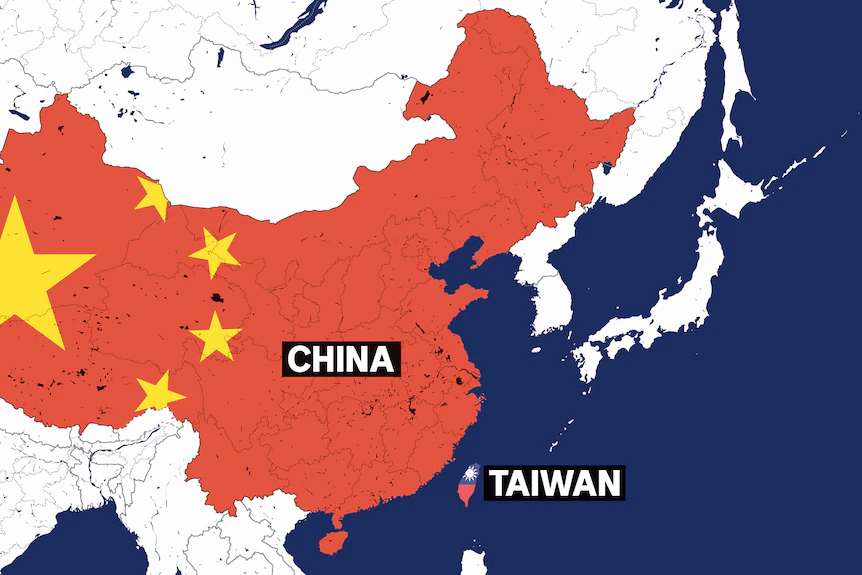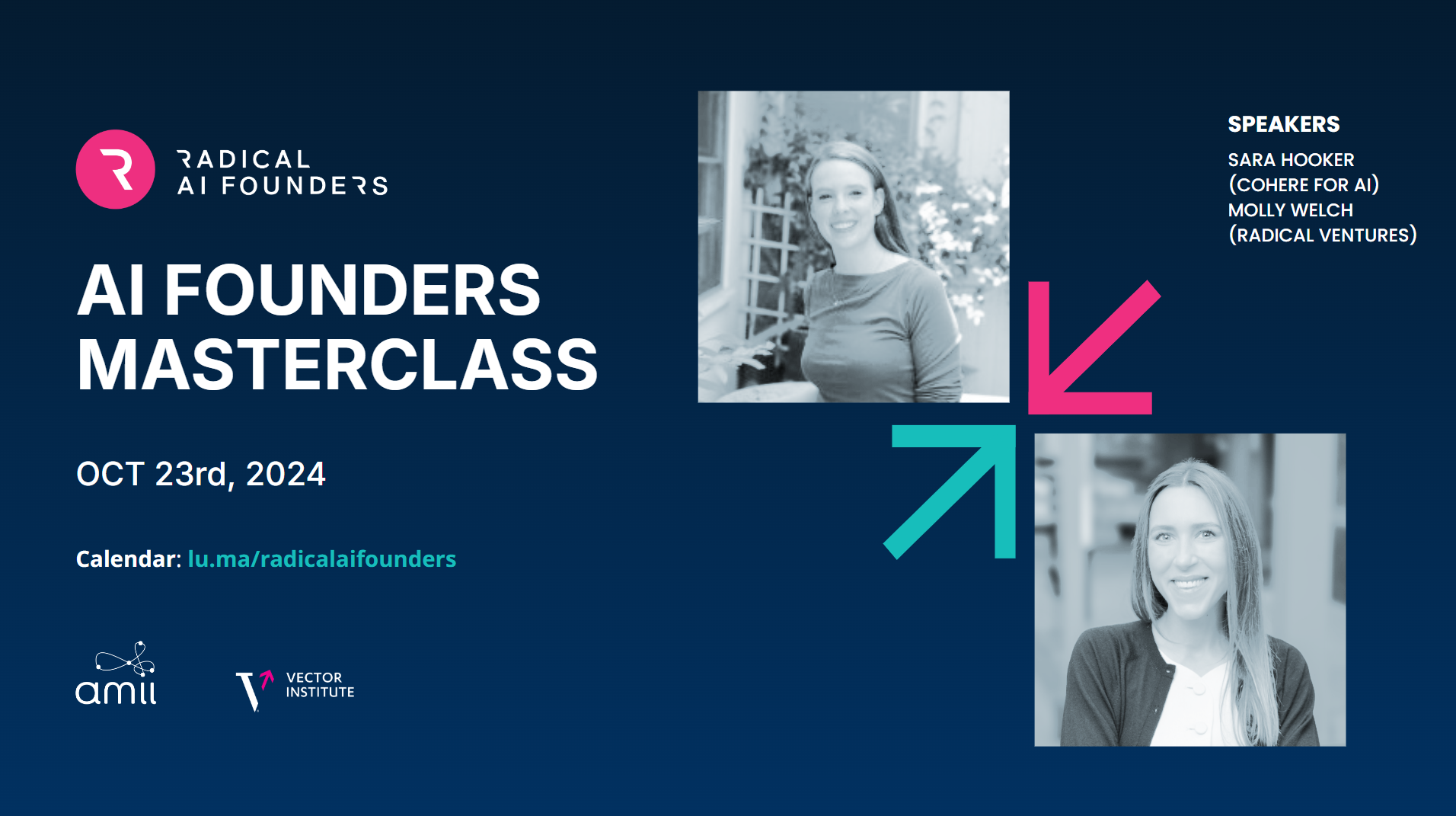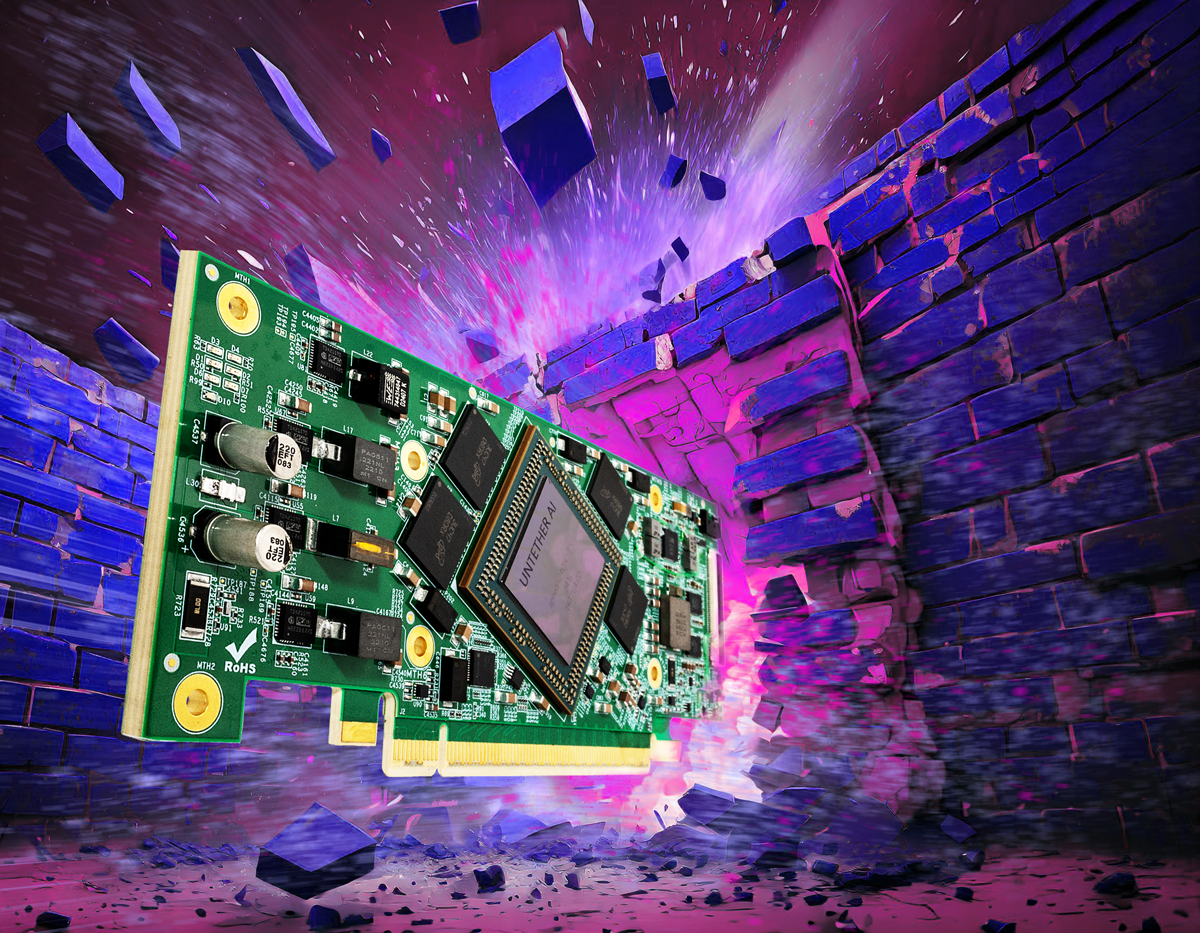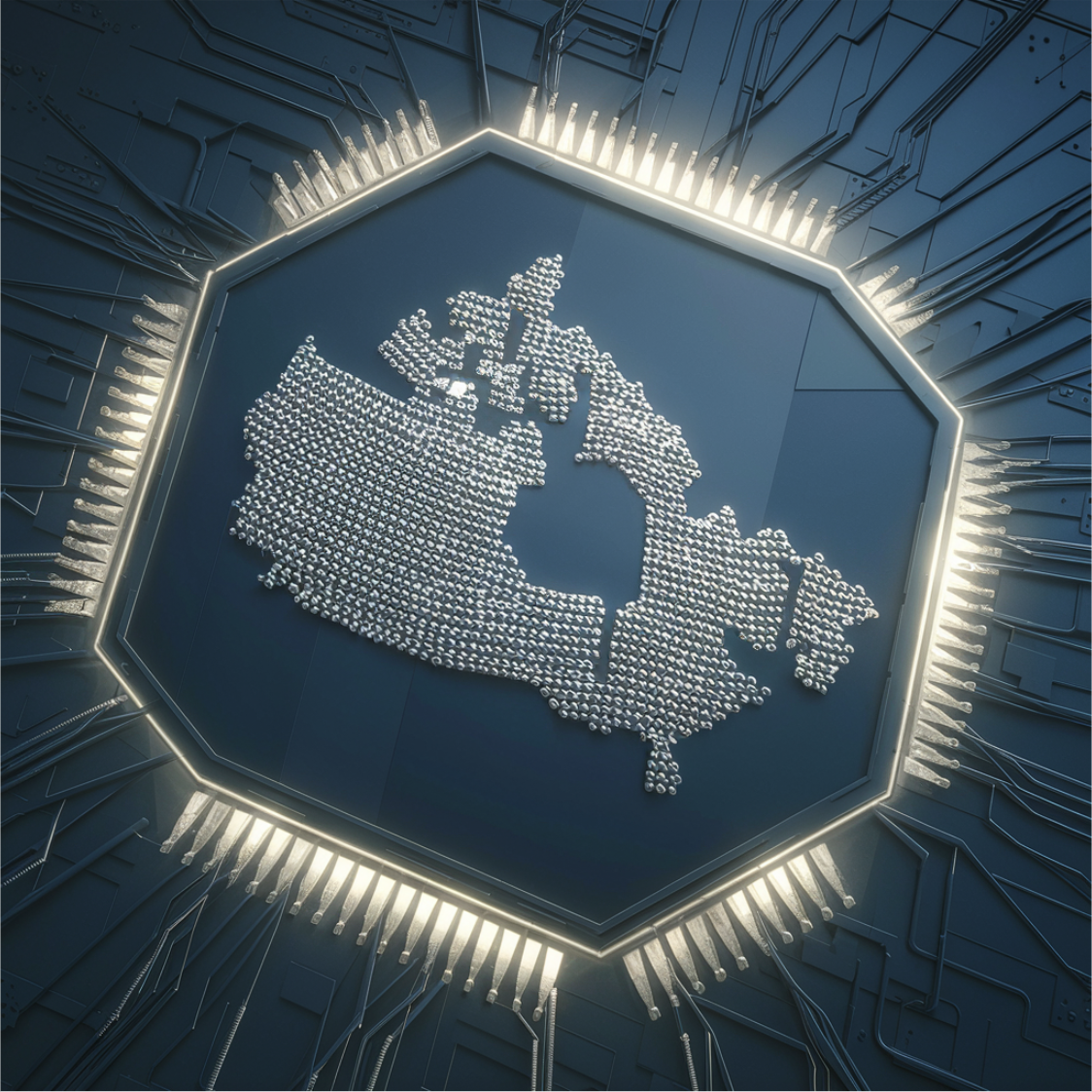Image Source: Taiwan is separate from the Chinese mainland. (ABC News: GFX/Jarrod Fankhauser)
The geopolitics of AI chips is a critical and multifaceted issue that has sweeping implications for both the global tech industry and international relations. The possibility of export restrictions on high-end AI chips has raised concerns that nations with limited access to these resources will fall behind. As technology continues to advance, the future geopolitical landscape may be shaped by the shifting dynamics of who has access to high-performance AI chips. In short, staying ahead of the curve on AI could prove to be one of the most critical challenges facing the international community in the years and decades ahead. Radical Ventures Partner Rob Toews published an article in Forbes last week discussing the current chip landscape and its importance for the future of Artificial Intelligence. This week we share a brief excerpt from the article.
The following statement is utterly ludicrous. It is also true.
The world’s most important advanced technology is nearly all produced in a single facility.
What’s more, that facility is located in one of the most geopolitically fraught areas on earth – an area in which many analysts believe that war is inevitable within the decade.
The future of artificial intelligence hangs in the balance.
The Taiwan Semiconductor Manufacturing Company (TSMC) makes all of the world’s advanced AI chips. Most importantly, this means Nvidia’s GPUs; it also includes the AI chips from Google, AMD, Amazon, Microsoft, Cerebras, SambaNova, Untether and every other credible competitor.
Modern artificial intelligence simply would not be possible without these highly specialized chips. Neural networks – the basic algorithmic architecture that has powered every important AI breakthrough over the past decade, from AlphaGo to AlphaFold to Midjourney to ChatGPT – rely on these chips. None of the breathtaking advances in AI software currently taking the world by storm would be possible without this hardware.
Little surprise, then, that Time Magazine described TSMC as “the world’s most important company that you’ve probably never heard of.” Nvidia CEO Jensen Huang put it more colorfully, leaving little doubt about how important TSMC is to the future of AI: “Basically, there is air – and TSMC.”
TSMC’s chip fabrication facilities, or “fabs” – the buildings where chips are physically built—sit on the western coast of Taiwan, a mere 110 miles from mainland China.
Today, Taiwan and China are nearer to the brink of war than they have been in decades. With tensions escalating, China has begun carrying out military exercises around Taiwan of unprecedented scale and intensity. Many policymakers in Washington predict that China will invade Taiwan by 2027 or even 2025.
A China/Taiwan conflict would be devastating for many reasons. One underappreciated consequence is that it would paralyze the global AI ecosystem. Put simply, the entire field of artificial intelligence faces an astonishingly precarious single point of failure in Taiwan. Amid all the fervor around AI today, this fact is not widely enough appreciated. If you are working on or interested in AI, you need to be paying attention.
Continue reading here. Rob writes a regular column for Forbes about Artificial Intelligence.
AI News This Week
-
When is a preclinical drug worth a mother lode of cash? This top 20 list offers a few answers (Endpoints News – subscription may be required)
A list of the top 20 preclinical deals over the last year illustrates their potential value despite often being characterized by low upfront payments and larger milestones. Radical Ventures portfolio company, Aspect Biosystems, was named one of these companies with its innovative bioprinting technology. The company is partnering with Danish multinational pharma company, Novo Nordisk, to further develop Aspect’s groundbreaking technology. As part of a deal totalling US $2.6 billion in value, Novo Nordisk is paying Aspect US $75 million upfront to fund further research and development on four cell therapy candidates across diabetes and obesity, with each candidate potentially worth $650 million in milestone payments plus royalties.
-
Making foundation models accessible: The battle between closed and open source AI (TechCrunch – subscription may be required)
Jae Lee, CEO and Co-Founder of Radical Ventures portfolio company Twelve Labs, highlights the ongoing discussions surrounding the control and accessibility of foundation models in AI. Foundation models are AI models that serve as the basis for various applications and tasks. Companies developing foundation models have changed the way we interface with computers and data and include companies like Cohere, Covariant, Hebbia and You.com (all of which are Radical Ventures portfolio companies). We have now entered a critical phase of AI where who gets to build and serve these powerful models has become an important discussion point. Financial obstacles and competition remain significant factors in determining the future of open source AI systems.
-
AI could run a million microbial experiments per year (Science Daily)
About 90% of bacteria in existence remains relatively unstudied by scientists. To tackle this unknown, researchers set up an AI system that enables robots to conduct autonomous scientific experiments – as many as 10,000 per day. Automating this discovery process could drive a drastic leap forward in the pace of discovery in areas from medicine to agriculture to environmental science. The researchers noted, “With the recent explosion of mainstream AI over the last several months, many people are uncertain about what it will bring in the future, both positive and negative. But to me, it’s very clear that focused applications of AI like our project will accelerate everyday research.”
-
Watch: Enterprise AI Opportunity (CNBC)
Aidan Gomez, CEO and Co-Founder of Cohere, shares on CNBC’s Fast Money how companies are using Cohere’s AI integrations to increase productivity. For example, transforming customer support by partnering with a live person who is using Cohere to augment their hundreds of thousands of agents to make them more efficient, more effective, better customer support agents. Extraordinary efficiency increases are “industrial revolution-level large.” Aidan points to the steam engine’s transformation of mechanical labour as akin to what AI will do for intellectual labour.
-
Research Spotlight: Learning agile soccer skills for a bipedal robot with deep reinforcement learning (OP3 Soccer Team, DeepMind)
Relying entirely on artificial simulation, researchers trained robots to play the game of soccer. In this “sim2soccer” demonstration, the robots have learned to walk, kick, get up from the ground, score, and defend from distilling policies in simulation and then transferring this to repeated exploration and learning during game play. Researchers have demonstrated that robots can increasingly adapt to the environment in real life by transferring complex behaviours from a simulated universe.
Radical Reads is edited by Ebin Tomy.





